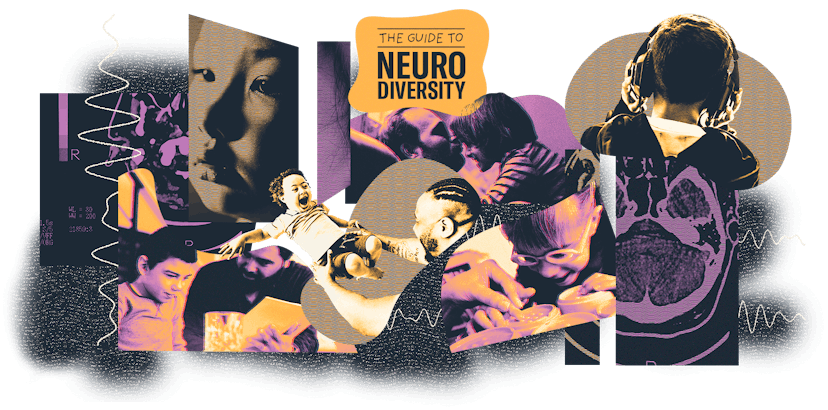

Neurodiversity is the view that brain differences are normal. People with autism, and learning disorders such as ADHD, dyslexia, and dyspraxia don’t have deficits; they have a normal variation of the human brain. And no one type of brain is better than another.
The term “neurodiversity,” which was coined in the late 1990s by Judy Singer, an autistic sociologist, frames brain differences as unique strengths that schools, the workplace and the rest of society should value. Rather than seeking to “cure” these differences, neurodiversity gives space and opportunity to people across a range of brain differences, so that they can play to their strengths.
At its core, neurodiversity is the hope that people with atypical ways of perceiving and interacting with the world can know that they’re accepted and normal, and not wrong or lesser-than. And when parents understand their neurodivergent children in a context of acceptance and normalcy, kids have a better chance to grow and thrive.
Pathological Demand Avoidance May Be Why Your Autistic Kid Won’t Follow Directions
It’s not that they don’t want to. It’s that they can’t.
ADHD More Common In Younger Kids, But Study Finds The Diagnosis Sticks
The youngest kids are way more likely to be diagnosed with ADHD than their peers, but it doesn’t seem to be a mistake.
Did Your Kid Get Diagnosed With ADHD? You Should Get Tested, Too.
ADHD comes with a strong genetic component. So if your kid has ADHD, there’s a good chance you also could.
Autism
ADHD More Common In Younger Kids, But Study Finds The Diagnosis Sticks
The youngest kids are way more likely to be diagnosed with ADHD than their peers, but it doesn’t seem to be a mistake.
Did Your Kid Get Diagnosed With ADHD? You Should Get Tested, Too.
ADHD comes with a strong genetic component. So if your kid has ADHD, there’s a good chance you also could.
Autism Eye-Tracking Tests Are Simple And Effective — But Does Your Kid Need One?
What parents need to know about the new FDA-approved eye-tracking device for diagnosing autism in young kids.
3 Big Mistakes Parents Of Kids With ADHD Make — And How To Avoid Them
Breakdowns in communication set children who have ADHD up to fail.
Why Parents Of Autistic Kids Should Avoid ABA Therapy
"When you make a child repeat something over and over, that’s abusive."
What To Do When Your Autistic Child Gets Aggressive
There’s no reasoning an autistic child out of an aggressive outburst. But there are other ways to handle it.
How To Navigate The Adderall Shortage If Your Kid Has ADHD
What to do if you can’t find a pharmacy that has your child’s ADHD medication in stock.
Pathological Demand Avoidance May Be Why Your Autistic Kid Won’t Follow Directions
It’s not that they don’t want to. It’s that they can’t.